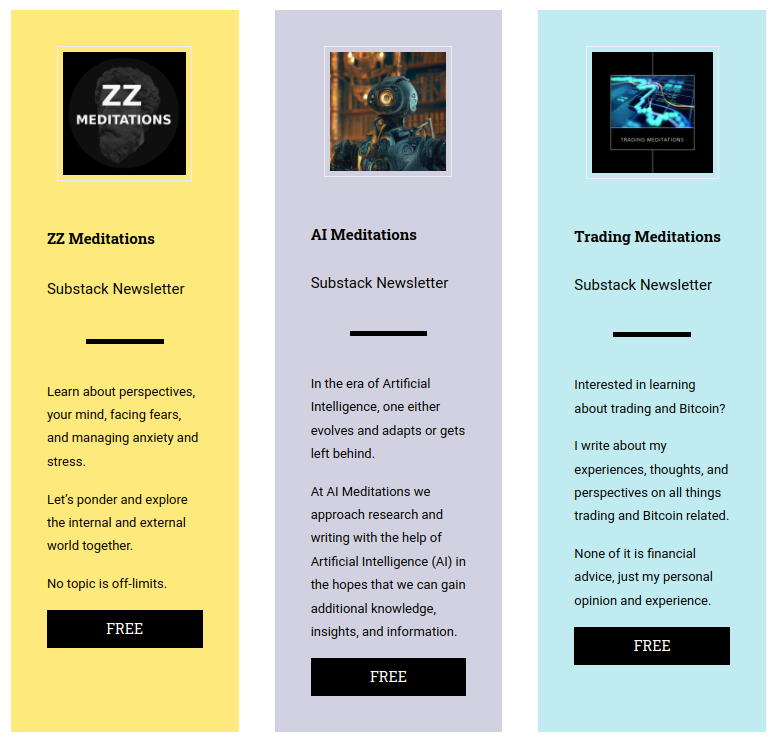What is Quantum Computing?
Quantum Computing Explained (by AI) in simple terms, so that we might all actually understand what it's all about.
I’ve been doing some research on AI and quantum computing, and I think you’ll find a few of these ideas interesting. This article is an explanation of quantum computing. AI has been instructed to become a teacher and explain this rather heavy topic in layman's terms. I also challenged it to think about what quantum computing could mean for the development of Artificial Intelligence. Enjoy.

Hello, students!
Today, we're going on an exciting journey into the world of quantum computing, a revolutionary field that promises to transform the way we solve complex problems, including those in the realm of artificial intelligence. We'll delve into the basics of quantum theory, explore how quantum computers work, discuss the challenges they face, look at the costs and accessibility, and examine the key players in quantum computing. Let's embark on this fascinating adventure together.
Understanding the Quantum Realm: Basics of Quantum Theory
Before we dive into quantum computing, we need to grasp the foundational principles of quantum theory. Quantum mechanics, developed in the early 20th century, is the branch of physics that describes the behavior of matter and energy at the smallest scales, where classical physics no longer holds. At its core, quantum theory introduces some fundamental concepts:
Superposition: In the quantum world, particles like electrons can exist in multiple states simultaneously. Imagine a coin that can be both heads and tails at the same time. This property is called superposition and forms the basis of quantum computing.
Entanglement: Entanglement occurs when two or more particles become interconnected in such a way that the state of one particle instantly affects the state of another, regardless of the distance between them. It's as if two coins, when flipped, will always land in opposite states, no matter how far apart they are.
Quantum Bits (Qubits): Unlike classical bits (0 or 1), qubits can represent a combination of 0 and 1 simultaneously due to superposition. This property allows quantum computers to perform parallel computations, making them exceptionally powerful for certain tasks.
How Quantum Computers Work
Now that we have a grasp of quantum theory, let's explore how quantum computers operate. Quantum computers use qubits as their fundamental building blocks. These qubits, thanks to superposition, can exist in a multitude of states simultaneously. Here's a simplified overview of how they work:
Initialization: Quantum computers start with qubits in a known state, often referred to as the "ground state" or "zero state."
Superposition: Qubits are then manipulated to enter a superposition of states, representing 0, 1, or any quantum combination of these values simultaneously.
Entanglement: Qubits can be entangled, allowing them to share information in ways that classical bits cannot.
Quantum Gates: Quantum gates are analogous to classical logic gates but operate on qubits in superposition and entanglement, enabling complex quantum computations.
Measurement: After computation, the quantum computer measures the qubits, collapsing them into classical bits (0 or 1), with each qubit's probability determined by its superposition.
The key to quantum computing's power lies in its ability to explore multiple solutions to a problem simultaneously, making it particularly efficient for specific types of tasks.
Challenges in Quantum Computing
While quantum computing holds immense promise, it's not without challenges:
Error Correction: Quantum computers are susceptible to errors due to factors like decoherence (loss of quantum properties) and noise. Developing error-correcting codes for quantum systems is a complex task.
Quantum Hardware: Building and maintaining quantum hardware is extremely challenging and costly. Quantum bits (qubits) must be kept at extremely low temperatures to maintain their quantum properties.
Access and Expertise: Access to quantum computers is limited, and expertise in quantum programming is currently a scarce resource.
Costs and Accessibility
Quantum computing is an expensive endeavor. The development and maintenance of quantum hardware, as well as the expertise required to operate them, pose significant costs. Currently, access to quantum computers is primarily limited to large research institutions, tech giants like IBM, Google, and startups specializing in quantum technology.
However, efforts are being made to increase accessibility. Cloud-based quantum computing platforms, such as IBM Quantum Experience and Microsoft Azure Quantum, allow researchers, developers, and even students to experiment with quantum algorithms and simulations.
Key Players in Quantum Computing
Several organizations and companies are at the forefront of quantum computing research and development. Notable players include:
IBM: IBM is a pioneer in quantum computing, offering cloud-based access to its quantum processors and actively collaborating with researchers worldwide.
Google: Google achieved quantum supremacy in 2019, demonstrating that quantum computers could outperform classical computers in specific tasks.
Microsoft: Microsoft is investing in quantum research and development through its Azure Quantum platform.
Startups: Various startups, like Rigetti and IonQ, are making strides in quantum hardware and software development.
Quantum Computing and AI: A Symbiotic Relationship
Now, let's explore how quantum computing intersects with artificial intelligence (AI):
Speeding up Training: Quantum computers can significantly accelerate the training of AI models, reducing weeks of training time to mere minutes. This enables faster experimentation with complex AI architectures.
Optimization: Quantum computing excels at solving optimization problems, which are prevalent in AI. This capability can lead to better-performing AI models and more efficient resource allocation.
Quantum Machine Learning: Quantum machine learning algorithms leverage quantum properties to process and analyze data more efficiently. They have the potential to revolutionize AI applications in fields like healthcare, finance, and natural language processing.
Simulation of Quantum Systems: Quantum computers are indispensable for simulating quantum systems accurately. This is crucial for advancing research in quantum chemistry, materials science, and quantum physics, which can, in turn, impact AI through improved material discovery and drug development.
Future Prospects and Advances
The future of quantum computing holds immense promise. Here are some potential advances and prospects:
Error Correction: Progress in quantum error correction codes will make quantum computations more reliable and practical.
Quantum Supremacy: Continued advancements may lead to even more convincing demonstrations of quantum supremacy.
Broader Accessibility: As quantum technology matures, we can expect broader accessibility, with more universities and companies gaining access to quantum computing resources.
Hybrid Approaches: Hybrid quantum-classical systems, where quantum processors augment classical computing, may become more prevalent, enabling practical applications across industries.
In conclusion, quantum computing is a captivating field with the potential to revolutionize various aspects of technology, including artificial intelligence. While it faces challenges, advances in quantum hardware and algorithms are occurring rapidly. The intersection of quantum computing and AI promises to unlock new frontiers in problem-solving, innovation, and scientific discovery. As students, you're witnessing the dawn of this quantum era, and your curiosity and knowledge will play a crucial role in shaping its future. Stay curious, keep exploring, and who knows what groundbreaking discoveries you may contribute to in the exciting world of quantum computing!

AI Meditations is the result of Artificial Intelligence (AI). AI is instructed to make its writing short, clear, and easy to understand for readers and algorithms alike. We try to interfere with its work as little as possible, but we do play around with styles and experimentation. We use AI for research and experimentation. Sometimes, that leads to some interesting results. We hope you enjoyed it and found it helpful.



